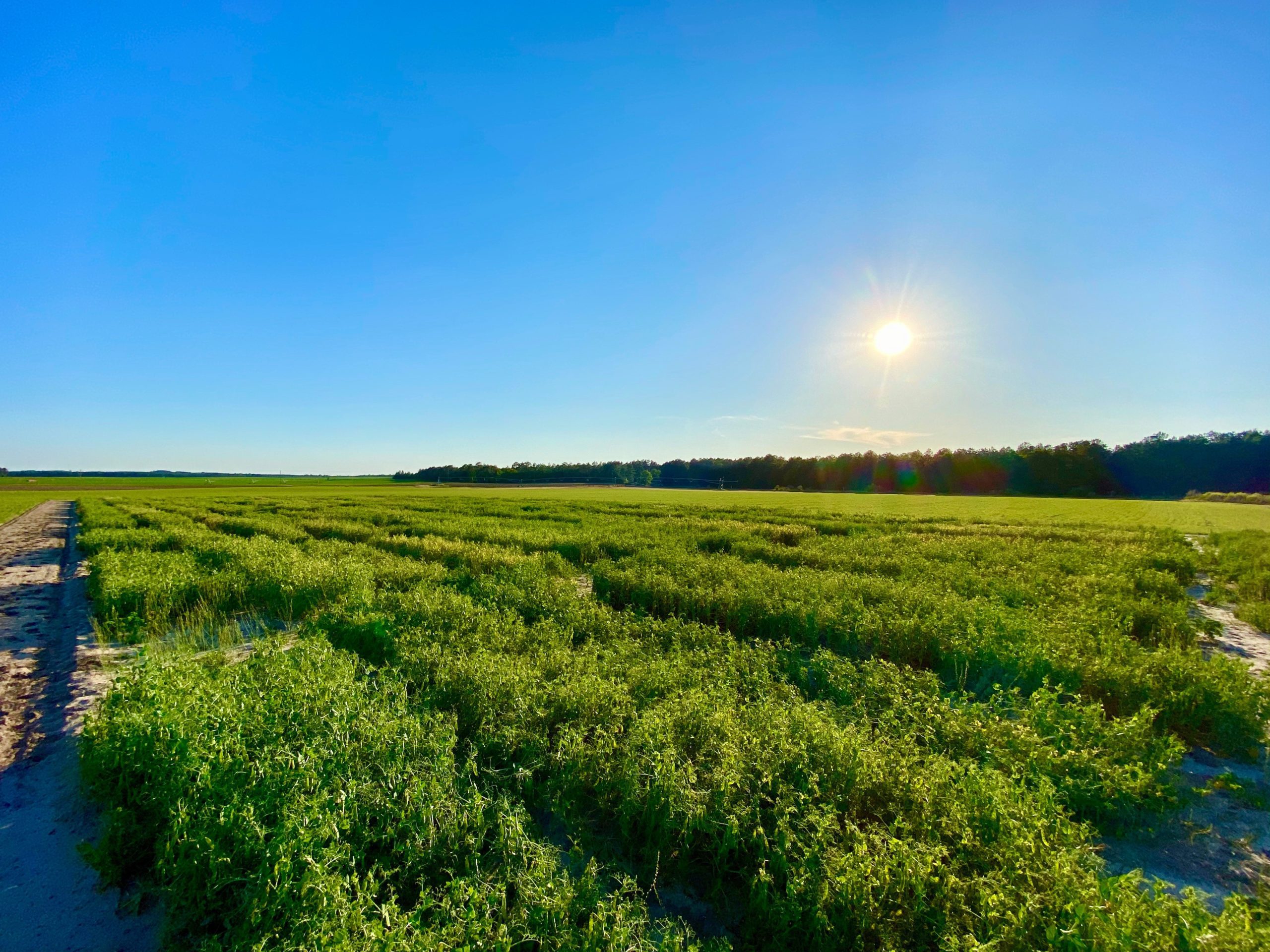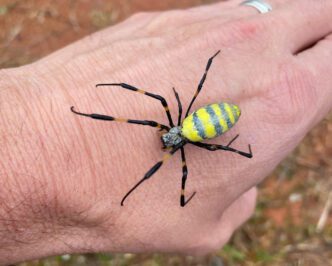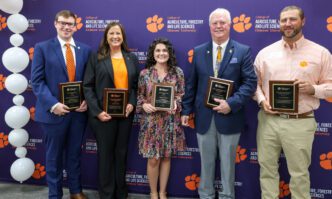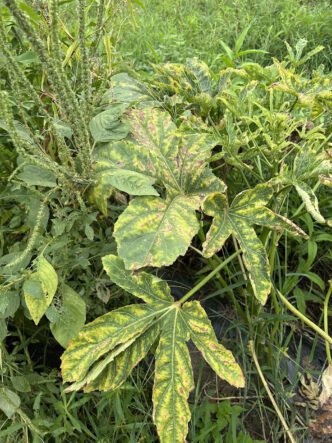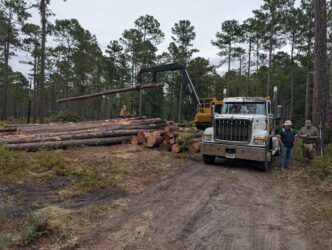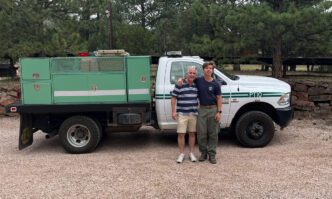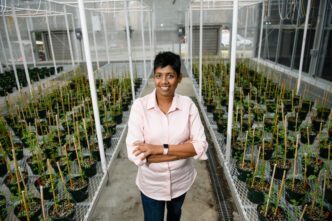Organic farming sometimes has a bad reputation for producing legumes with lower nutritional quality. But some Clemson University researchers believe field peas and lentils can be grown organically and still have improved nutrient quality.
The researchers are Dil Thavarajah, Stephen Kresovich and Lucas Boatwright. They have received a 4-year, $1.2 million grant from the United States Department of Agriculture National Institute of Food and Agriculture to establish an organic breeding pipeline for field pea and lentil cultivars with higher protein quality, digestibility, color, texture, flavor that are suitable for organic production. Their goal is to develop cultivars suitable for the Southern climate, especially South Carolina and North Carolina organic production systems.
Thavarajah, lead investigator for the project and a Clemson associate professor of pulse quality and organic nutritional breeding, said this research is needed because consumer demand for organically grown plant-based protein is increasing.
“Organic plant-based proteins are popular because they are a clean source of protein without added chemicals,” Thavarajah said. “But, organically grown pulse crops have lower protein content levels and are more expensive. During this study, we want to determine how to develop protein-biofortified organic pulse cultivars that will lead to economically rewarding sustainable organic farms especially in the Carolinas.”
Both field pea and lentils are pulse crops. Pulses are called “poor man’s meat” because they are rich in nutrients, such as proteins, but do not cost as much as meat. Among the objectives of this project are developing protein-enriched organic field pea and lentil varieties and providing on-farm Cooperative Extension Service educational activities.
Going organic webinar series
By using organic farming practices, farmers don’t need to buy expensive chemicals and fertilizers. Instead, they use farming practices, such as different tillage methods and cover-cropping for weed control, and biological methods for insect pest control.
To help educate people about the benefits of growing organic produce, a free Going Organic webinar series will be held. This seminar series includes nationally and internationally known experts.
“I invite everyone who is interested in organic farming to tune in to these webinars,” Thavarajah said. “Experts from across the United States, Canada and India will cover a range of topics related to organic agriculture and nutritional breeding.”
The series is divided into two categories – Breeding and Nutrition, and Agronomy and Organic Management. To register for each session, go to https://bit.ly/CU_GoingOrganic. For updates and webinar information, go to https://bit.ly/CU_OPBI.
Breeding and Nutrition Sessions

The Breeding and Nutrition sessions kick off at 10 a.m. (EST) Sept. 28 with a presentation by Gerald Combs, senior scientist of the Jean Mayer United States Department of Agriculture (USDA) Human Nutrition Center on Aging at Tufts University and a professor of nutrition emeritus from Cornell University. Combs will give “Some Thoughts About Pulses.” As a scientist, Combs’ research interests include micronutrient functions, diet and cancer prevention and how agriculture, food production and human health are linked.
Mathieu Ngouajio, national science liaison for crop production systems with the USDA National Institute of Food and Agriculture , will present at 11 a.m. (EST) on Oct. 26. Ngouajio represents NIFA primarily regarding programs related to plant production and protection, as well as organic farming. He served as a national program leader from 2013 to 2019 in the Institute of Food Production and Sustainability. He also has been a horticulture professor at Michigan State University with a research and Cooperative Extension Service appointment.
Rajeev Varshney, research program director for accelerated crop improvement with the International Crops Research Institute for the Semi-Arid Tropics (ICRISAT) in India is slated to present 10 a.m. (EST) on Nov. 16. Varshney is internationally recognized as a leader in genome sequencing, genomics-assisted breeding, translational genomics and capacity building in international agriculture. He developed genome sequences for 10 crops including pigeonpea, chickpea, groundnut and pearl millet and several molecular breeding products in chickpea and groundnut. Genomics resources developed by his colleagues and collaborators are being used in several breeding programs with an objective to modernizing crop improvement.
The final presentation in the Breeding and Nutrition category begins at 11 a.m. (EST) on Dec. 7. The presenter for this session will be announced later.
Agronomy and Organic Management Sessions
Agronomy and Organic Management webinars begin at 10 a.m. (EST) Jan. 25, 2022, with a presentation by Steve Shirtliffe, an agronomy professor and project co-lead for the Crop Phenometrics Platform – Leveraging Field Phenomics for Advancing Key Rotational Crops, with the University of Saskatchewan. Shirtliffe’s primary area of research is field crop agronomy, in which he has been conducting field-based research for more than 20 years, gaining extensive experience in small plot crop agronomy. His position involves teaching, research and outreach in the areas of agronomy and weed control. Shirtliffe’s past and current research projects focus on the ecology and control of volunteer canola, cereal and pulse and oilseed agronomy, non-herbicidal weed control and agronomic applications of unmanned aerial vehicles (UAVs) or drones.
Audrey Kalil, a plant pathologist with North Dakota State University, takes the stage at 10 a.m. Feb. 22, 2022. Kalil’s interest in legumes stems from working for an inoculant company where she learned about rhizobium-legume symbiosis. She thought the use of biological nitrogen fixation was a very powerful tool in reducing reliance upon nitrogen fertilizers in agriculture. With this interest, she studied the genes underlying the symbiosis in the model legumes Medicago truncatula and Lotus japonicus while earning her doctorate from the University of Wisconsin-Madison. Currently Kalil is involved in projects to improve disease management in pulse crops primarily focused on root rots of peas and lentils and Ascochyta blight of chickpeas.
Ann-Marie Fortuna, a USDA research soil scientist, will be featured during a 10 a.m. (EST) presentation on March 22, 2022. Fortuna is located at the USDA Agricultural Research Service’s Agroclimate and Natural Resources Research Unit in El Reno, Oklahoma. The mission of researchers at this unit is “…to quantify interactive effects of land use, agricultural management, climate and the water cycle on agricultural and hydrologic systems; and to develop planning tools to evaluate and manage environmental and economic risks under variable climate, energy and market conditions.” Fortuna’s projects include Development and Delivery of Science-based Climate-Informed Agricultural Information and two Benchmark Watershed Assessment Studies (on Croplands) that began in 2019 and 2020.
The Agronomy and Organic Management sessions end April 26, 2022 with an 11 a.m. presentation by Joji Muramoto, assistant Cooperative Extension organic production specialist with the University of California. Muramoto has conducted research and Extension work on fertility and soil-borne disease management in organic and conventional strawberry and vegetable production in coastal California. Over the course of his 32-year career, Muramoto has served as a soil scientist and agroecologist.
For more information about the webinar series, contact Tristan Lawrence at tjlawre@clemson.edu. For information about the grant, contact Thavarajah at dthavar@clemson.edu.
-END-
This study is funded by the United States Department of Agriculture, National Institute of Food and Agriculture (USDA-NIFA) Award No. 2021-51300-34895. Any opinions, findings, conclusions, or recommendations expressed in this material are those of the authors and do not necessarily reflect the views of the USDA-NIFA.

